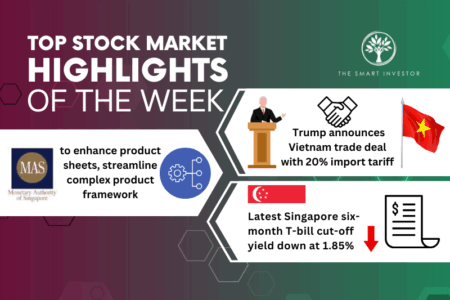Dividend cuts are coming.
As companies start to report their earnings for the first quarter of the calendar year, investors are bracing themselves for the bad news.
The quarter will include March, where the COVID-19 virus outbreak turned into a full-on pandemic affecting numerous sectors of the economy.
Investors will naturally be concerned over the performance of the companies within their investment portfolios.
Singapore Exchange Limited (SGX: S68), or SGX, has spelt out to companies that a detailed assessment should be given for the COVID-19 situation, and that businesses should not attribute poor business results to the pandemic without providing additional information.
Aside from the expected fall to revenue and profits, income-seeking investors will almost certainly have to contend with falling dividends, too.
The question here is how deep will these cuts be? And should investors be concerned that these cuts may be permanent?
A matter of prudence
Some REITs have already begun slashing dividends to build up some buffer for tenant relief measures.
SPH REIT (SGX: SK6U) slashed its distribution per unit (DPU) by almost 80%, while another retail REIT, Frasers Centrepoint Trust (SGX: J69U), reduced its latest quarter’s DPU by 48.7%.
Investors should note that these moves are being made as a matter of prudence.
Footfall has plunged drastically over the last two months as Singapore’s circuit breaker measures kicked in. Only essential services are allowed to operate, effectively shuttering most businesses within the malls.
The Monetary Authority of Singapore has allowed REITs to defer the payment of at least 90% of their earnings by up to 12 months past the date of their current fiscal year-end.
This regulation allows REITs to reduce their dividends in the short-term, with the expectation that DPU will eventually be restored when things go back to normal.
Dividend payments depend on business conditions
With business volumes falling off a cliff, investors should not be surprised if businesses slash their dividends.
After all, a business can only pay out a portion of what it earns.
If the earnings and cash flow end up being drastically lower, the company has no choice but to reduce or eliminate its dividend.
Simply put, if the company sits in an industry that is directly impacted by the pandemic, then it’s fair to expect it to either drop its dividend (to conserve cash) or reduce it significantly.
For businesses that are indirectly impacted (either because of disrupted supply chains or a fall in consumer demand), these may retain a similar level of dividends or still decide to cut them for prudence sake.
There is also a small bunch of businesses that are doing well despite the lockdowns and circuit breaker measures.
These businesses may even raise dividends, or at the very least, keep them constant on a year on year basis.
Cuts are par for the course
Even great businesses may cut dividends temporarily when times get tough.
An example of this occurred with SGX. In 2007 and 2008, when equity trading volumes hit a record high due to the bull market, the bourse paid out annual dividends of S$0.36 and S$0.38, respectively.
When the Global Financial Crisis (GFC) hit in 2009, SGX cut its dividends to S$0.26 for 2009.
As the recovery took place, SGX gradually increased its dividend to the current S$0.30 per year for the fiscal year 2019.
Another example was Boustead Singapore Limited (SGX: F9D).
The diversified engineering group paid out a total of S$0.05 in dividends for the fiscal year 2008 but reduced this to S$0.04 the following year when the GFC hit.
By the fiscal years 2010 and 2011, total dividends were back to S$0.055 and S$0.07, respectively.
Get Smart: Even great companies suffer hiccups
Investors need not fret over the prospect of dividend cuts.
It’s common for companies, even strong ones, to reduce dividends during tough times.
Hiccups and obstacles are part and parcel of what a company faces on an ongoing basis.
If a company has a strong balance sheet and market position, it will remain resilient during any crisis and eventually emerge stronger.
Dividends should be restored once again when things are back to normal.
In our latest FREE report, “How To Make Money Investing In The US Stock Market”, we show how, if you had invested S$100,000 into stocks, it would have grown to a tidy sum of S$145,700 over a three and a half year period.
Just CLICK HERE to download your free copy now!
Disclaimer: Royston Yang owns shares in Boustead Singapore Limited and Singapore Exchange Limited.




